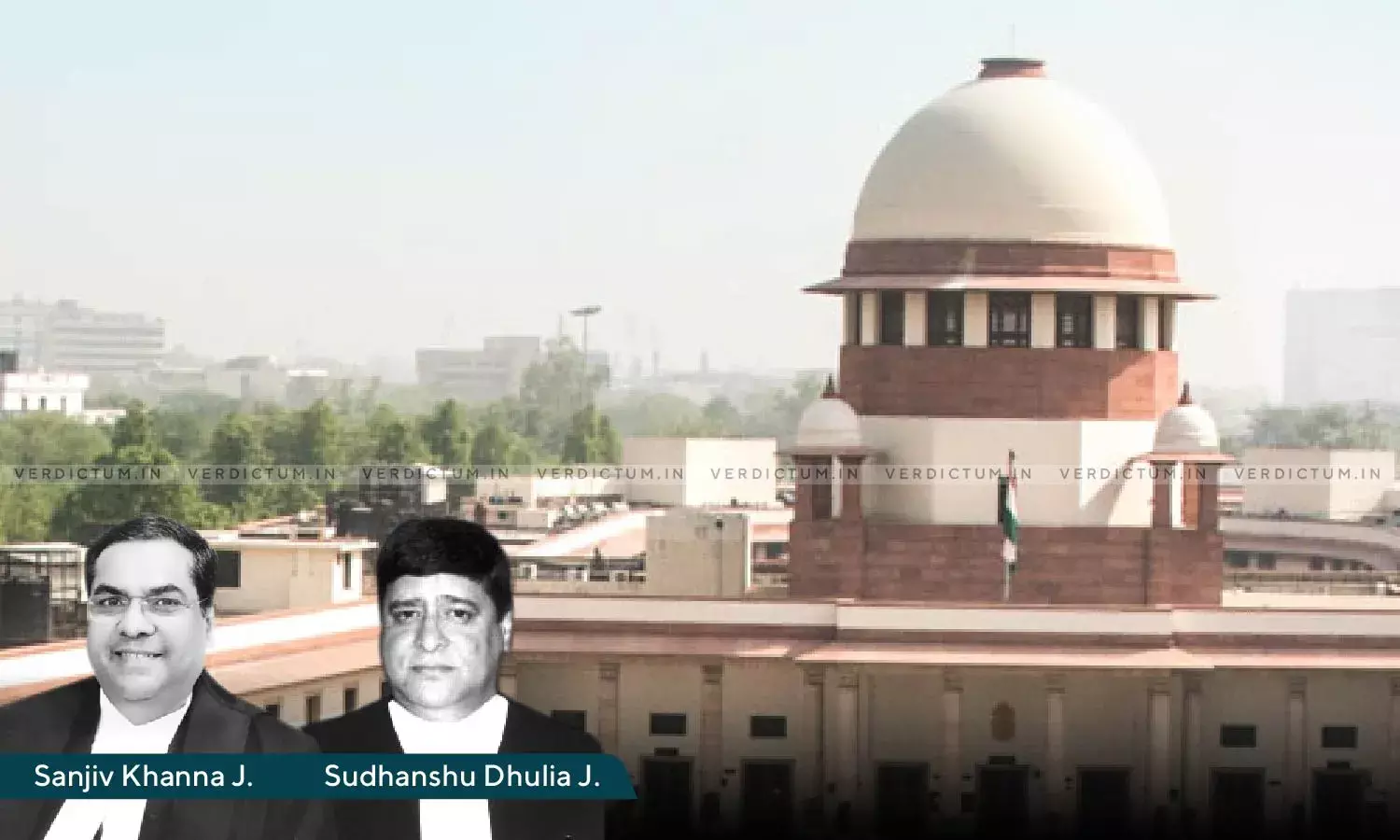Right Of Secured Creditors U/s. 529 Companies Act Unaffected By Customs Dues U/s. 142A Customs Act: SC While Allowing IDBI's Appeal
The Supreme Court allowed a Civil Appeal of the Industrial Development Bank of India (IDBI) to ascertain whether the Customs Act (CA) creates a first charge overriding the charge in favour of the secured creditor.
The Court noted that the Customs Act creates the first charge on dues 'payable' but ensures the right of third parties are unaffected in cases covered under Section 529A of the Companies Act, 1956 , the Recovery of Debts Due to Banks and the Financial Institutions Act 1993, the Securitisation and Reconstruction of Financial Assets and the Enforcement of Security Interest Act 2002, or the Insolvency and Bankruptcy Code 2016.
The Bench comprising Justice Sanjiv Khanna and Justice Sudhanshu Dhulia observed, “It is clear to us that the provision of Section 142A of the Customs Act, insofar as it protects the rights of overriding preferential creditors governed and covered by Section 529A of the Companies Act, is clarificatory and declaratory in nature, and does not lay down a new dictum or confer any new right as far as the present case is concerned. However, the enactment of section 142A of the Customs Act does confer or create a first charge on the dues ‘payable’ under the Customs Act, notwithstanding provisions under any Central Act, but not in cases covered under Section 529A of the Companies Act, RDDBFI Act, SARFAESI Act and the IBC. Section 142A of the Customs Act, post its enactment, would dilute the impact of Section 530 of the Companies Act, which had restricted preferential treatment to government taxes ‘due and payable’ limited to twelve months prior to the ‘relevant date’, without preferential right for taxes that had become ‘due and payable’ in the earlier period”.
Advocate Anand Varma appeared for the Appellant and Advocate B. Krishna Prasad appeared for the Respondent.
Background:
Sri Vishnupriya Industries Limited (Company) borrowed funds from IDBI to import machinery from Italy and hypothecated the disputed movable property. The goods were stored in a private warehouse by executing bonds under the CA, but the Company neglected to clear them for home consumption. The Customs authorities issued show-cause notices and duty payment orders, but the Company did not comply, resulting in Customs ordering the sale of the goods to get the duty paid. However, the High Court later liquidated the Company, and the Official Liquidator applied to recover the goods. The Single Bench of the High Court allowed the application. The Customs authority filed an intra-court appeal before the Full-Bench of the High Court, which ruled in their favour. IDBI applied to the Supreme Court, challenging the judgment of the Full Bench of the High Court and deciding who would receive the final disposition of the auction proceeds.
The Court noted that per the Act, secured creditors and workmen's dues are prioritized over government dues, which are limited to debts that are 'due and payable' in the year before the relevant date. However, this doesn't mean that the CA provisions are no longer valid. Even if there are outstanding government dues under the Customs Act, prior secured creditors can still enforce their charge as they have the right to do so.
"The provisions in the Customs Act do not, in any manner, negate or override the statutory preference in terms of Section 529A of the Companies Act, which treats the secured creditors and the workmen’s dues as overriding preferential creditors; and the government dues limited to debts ‘due and payable’ in the twelve months next before the relevant date, which are to be treated as preferential payments under Section 530 of the Companies Act, but are ranked below overriding preferential payments and have to be paid after the payment has been made in terms of Section 529 and 529A of the Companies Act. Therefore, the prior secured creditors are entitled to enforce their charge, notwithstanding the government dues payable under the Customs Act", the Bench observed.
Furthermore, the Court overruled the Calcutta High Court's decision in the case of Collector of Customs v. Dytron (India) Ltd. [1998 SCC OnLine Cal 674] regarding preferential payments.
In this context, the Court noted, "We wish to clarify, as held above, that the decision in Dytron (India) Ltd. (supra) does not lay down the correct law, as even earlier, the position in law was that the debt ‘due and payable’, when it falls within the four corners of clause (a) to Section 530(1) of the Companies Act, would be treated as preferential payment, but it would not override and be given preference over the payments of overriding preferential creditors covered under Section 529A of the Companies Act".
The Court directed the auction proceeds be paid to the Official Liquidator for distribution, following the provisions of Sections 529A and 530 of the Act.
Accordingly, the Court allowed the Appeal and set aside the impugned judgment.
Cause Title: Industrial Development Bank of India (Through Stressed Assets Stabilization Fund Constituted By The Government Of India) v Superintendent of Central Excise And Customs And Others (2023 INSC 746)
Click here to read/download Judgment




